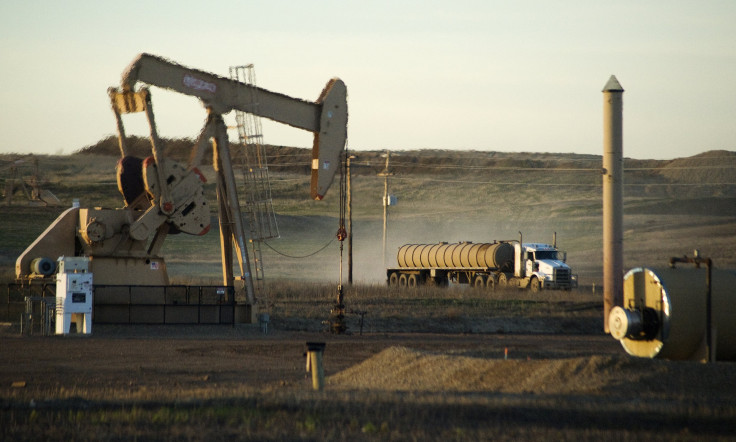Oil Prices Won't Likely Top $60 A Barrel In 2016 As Supply Glut Widens: WSJ Poll

Oil prices won’t likely snap out of their slump in 2016, as crude-producing nations are expected to keep markets oversupplied. A Wall Street Journal survey of 13 major investment banks suggested prices will struggle to break past $60 a barrel next year, extending their 16-month slog.
While U.S. shale oil production is starting to fall, major producers including Saudi Arabia, Russia and Iraq are pumping at near-record levels to maintain market share. Iran could soon ramp up its own production as economic sanctions ease following its landmark nuclear deal with the U.S. and other world powers.
Meanwhile, oil demand growth is expected to sputter alongside the sluggish economic growth in China and other fuel-thirsty markets.
Next year, Brent crude, the international benchmark, will average $58 a barrel, according to the Journal’s poll of investment banks. West Texas Intermediate, the U.S. price gauge, will average $54 a barrel.
Brent was trading at $49 a barrel Thursday morning, while WTI prices were at $46.26.
“Prices need to stay low in order to balance the market,” Michael Wittner, global head of oil research at Société Générale, told the Journal. “Low prices encourage global oil demand growth and also assure a significant falloff in U.S. crude production.”
America’s oil output has dropped to about 9 million barrels a day from a 43-year peak of 9.6 million barrels a day in April, the Energy Information Administration recently estimated.
But shale production in Texas, North Dakota and other states -- a driving factor in the current supply glut -- will need to drop much further to shrink the global oversupply, given that members of the Organization of Petroleum Exporting Countries aren’t backing down.
Crude supplies could also shrink as major spending cuts at global oil-and-gas giants take root although prices still won’t likely lift until 2017 as the market rebalances, energy analysts told International Business Times this week.
BP Plc said Tuesday it aggressively reduced operating costs by $3 billion for the first nine months of 2015, compared to the same period last year. BP’s annual costs will be $6 billion lower in 2017 than in 2014, the British oil giant said in its third-quarter earnings report, citing tough business conditions.
Royal Dutch Shell Plc Thursday said it took charges of $7.9 billion in the third quarter after scrapping a handful of big ticket projects, including an Arctic drilling venture in Alaska’s Chukchi Sea and an 80,000-barrel-a-day oil sands project in Western Canada.
That scaled-back production, combined with falling U.S. output and warmer demand growth, could help raise oil prices to $60 a barrel by 2017, BP and other experts said this week.
“These things take at least two years to shake off,” Michael Hulme, manager of the Carmignac Portfolio Commodities Fund, told the Journal.
© Copyright IBTimes 2024. All rights reserved.





















